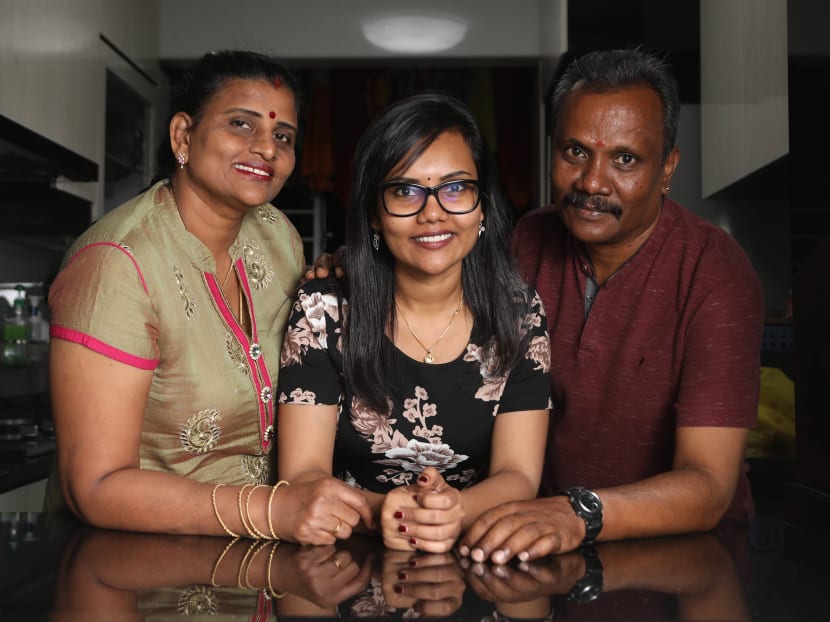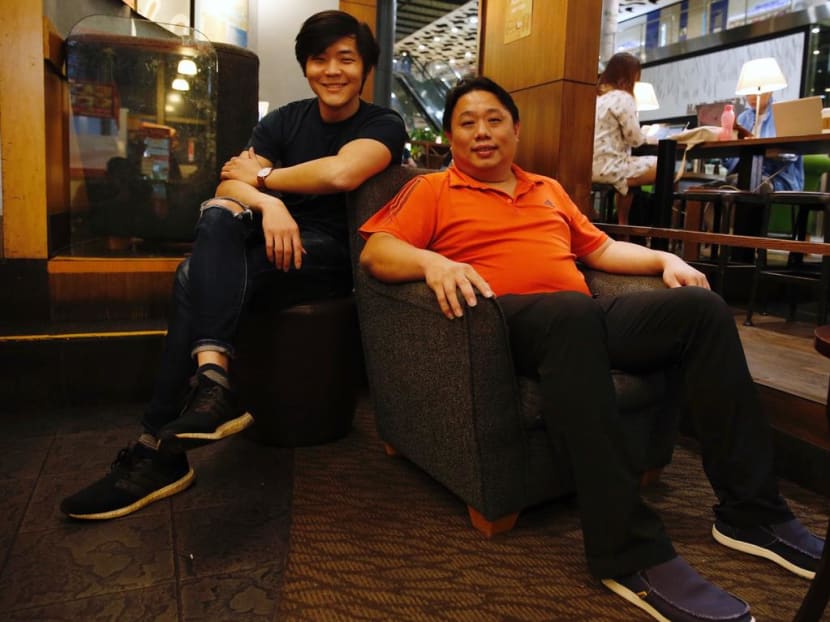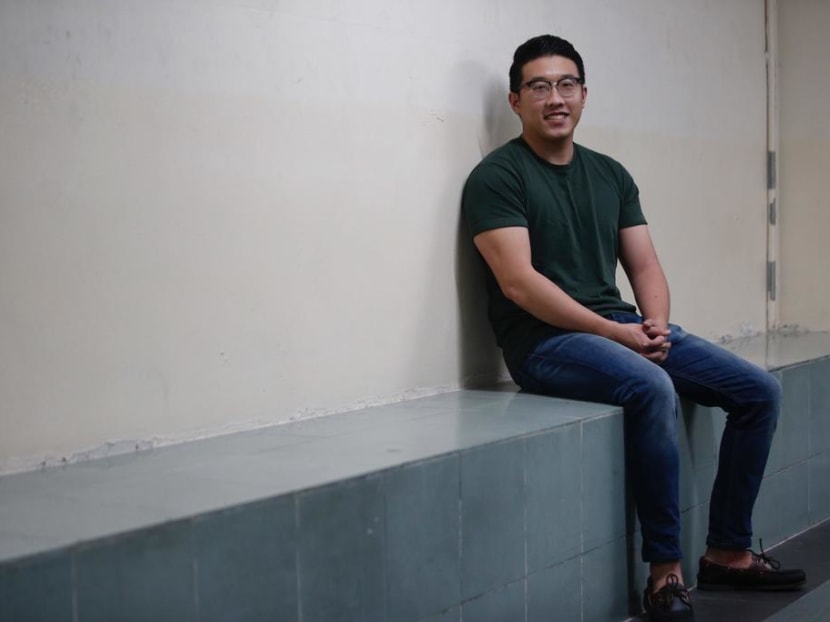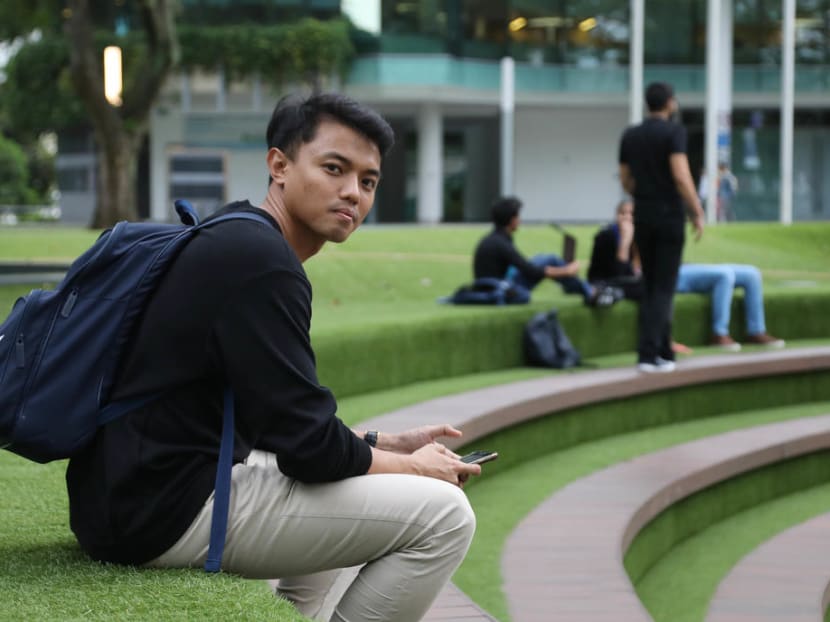25-year-old pursued part-time degree with her own savings to ease burden on father
SINGAPORE — After finishing her polytechnic diploma in biomedical science in 2013, Ms R Abirami took a leap of faith, electing to pursue her undergraduate studies part-time as she did not want to further burden her father’s finances.

Ms R Abirami (seen here with her parents) is from a low-income family of six. Her father, a technician, was the family’s sole breadwinner until she joined the workforce five years ago.
SINGAPORE — After finishing her polytechnic diploma in biomedical science in 2013, Ms R Abirami took a leap of faith, electing to pursue her undergraduate studies part-time as she did not want to further burden her father’s finances.
“If you’re rich, you can go for a full-time programme without an issue, but even though I took a part-time programme, that actually gave me an edge over others because I also gained work experience,” she told TODAY at her home in Chua Chu Kang.
.embed-container { position: relative; padding-bottom: 56.25%; height: 0; overflow: hidden; max-width: 100%; } .embed-container iframe, .embed-container object, .embed-container embed { position: absolute; top: 0; left: 0; width: 100%; height: 100%; }Ms Abirami, 25, comes from a family of six. She has three younger sisters aged 14, 18 and 20, and her mother, 45, is a housewife.
Her father, V Ramasamy, 54 — a service technician who sometimes clocked seven-day work weeks — is the sole breadwinner.
When Ms Abirami was in primary school more than a decade ago, he took home between S$2,000 and S$2,400 monthly, Mr Ramasamy told TODAY. He was laid off in April this year by his employer of six years, where he earned up to S$3,400 a month.
In her final year at Ngee Ann Polytechnic, a lecturer told Ms Abirami’s class about job and placement opportunities that were available after they completed their studies.
Though none of her classmates were interested, she decided to give it a shot and began work in 2013 — shortly after her final semester in polytechnic — at a laboratory doing bladder-cancer research at the National University of Singapore (NUS) as a lab technologist.
She saved enough to fund the first semester of her undergraduate studies and applied for a part-time bachelor’s degree in biomedical engineering, which she embarked on in 2014 at the Singapore University of Social Sciences (SUSS).
Working and saving for each subsequent semester, she paid for the S$30,000 programme, which she completed at the end of last year, with her own money.
“If I were to do a full-time programme, the financial burden would be on my dad again, and that’s what I didn’t want. So, I started to support myself,” she said.
She had no regrets over her decision, which she believed stood her in good stead vis-a-vis her peers who opted for full-time studies.
“In the end… I also graduated with four years of experience, whereas they graduated just with a degree,” she added.
HARD-EARNED MONEY
Mr Ramasamy told TODAY that he often drilled into his children that providing for the family was no stroll in the park.
Sometimes, he had to toil up to seven days a week without rest. He would remind them that “this is life, and you choose how you want to live your life.”
The family lived paycheck to paycheck, and would treat themselves to a meal in the food court only once in half a year, he said.
The family also had to be judicious about what others may enjoy more often — such as going to the cinema.
“Sometimes, I envied my friends with very fancy stationery,” said Ms Abirami.
Her parents were, however, very transparent about what they could afford, and Ms Abirami was aware that her father had other expenses to take care of.
Still, they found the means to provide Ms Abirami with subsidised primary-school group tuition at the Jelapang Residents’ Committee (RC) in Bukit Panjang when she was younger.
Though the RC did not offer tuition beyond primary school, Mr Andrew Loh, her tutor, continued to help Ms Abirami with subjects such as Additional Mathematics through secondary school at no cost.
SUPPORTIVE COLLEAGUES
Mr Loh was not the only one who gave Ms Abirami a much-needed lift along the way.
After her two-year contract with the NUS lab came to an end in May 2015, she moved to the Singapore Institute of Technology (SIT) the following month as a technical officer, where she supports pharmaceutical laboratory sessions.
Her former director at SIT, Mr Rendell Tan, would stress the importance of studying at her age.
“He really motivated me and wanted me to further my studies as well. Whenever I applied for study leave, he always let me go ahead,” she said.
Her colleagues were also happy to cover her duties while she was away on study leave to prepare for exams, sometimes for a fortnight in a row.
“I was lucky that my colleagues were very understanding,” she said.
While juggling work and study is no mean feat, Ms Abirami said working towards better qualifications was what kept her going.
“Since young, my dad would tell me that… the paper qualification would bring you way further than anything else,” she said.
“If you’re rich one day, you can become poor. But if you have the knowledge, it doesn’t dry off… It would make my life much better as well.”
Ms Abirami’s quest for higher education did not stop after she completed her degree at the end of 2017.
After she finished her exams, Dr Lim Kaiyang, an SIT chemical engineering and food technology lecturer with ongoing research projects, asked her to drop into the laboratory to pick up field skills which could help in her future development.
She seized the opportunity, observing and helping with his projects after work.
What started out as an avenue to pick up new skills soon turned into a master’s degree project to develop a dual-layer hydrogel for open wounds, which acts as a dressing to prevent infection.
She proposed the research project to SUSS and re-enrolled in the university in July for a part-time master’s in biomedical engineering, with SIT’s Dr Lim as her industry supervisor.
SIT does not presently offer master’s degrees in science.
Having benefited from the support and kindness of various individuals, Ms Abirami aspires to eventually lecture in biomedical science at a polytechnic.
“When I was younger, I always envied a lot of students when I read through the papers and saw others doing so well… I’m kind of living my dream life already,” she said.
For this week's Big Read, TODAY sat down with several youths who had a disadvantaged start in life to find out about the challenges they confronted as well as the opportunities that came their way. Read their profiles here:
Teachers, friends help Normal (Tech) student in his journey to NUSA nudge from his older brother and family friend, and prodding and support from his school spurred Mr Tan Wang Ren, 25, to pull off something that no one in his school had done before: Move up to the Express stream from Normal (Technical). Read more here.

As a young child growing up in a three-room flat in Toa Payoh, Mr Eric Lee was aware that finances were tight for his family of five. His father, a blue-collar worker in a fibreglass company, was the sole breadwinner, and his homemaker mother occasionally took on babysitting jobs to help supplement the family’s income. Read more here.

For Mr Mohammad Helmi, 24, the financial hardships he had weathered during his younger days turned him into a resilient young man raring to create a better life for himself and his family. Read more here.









